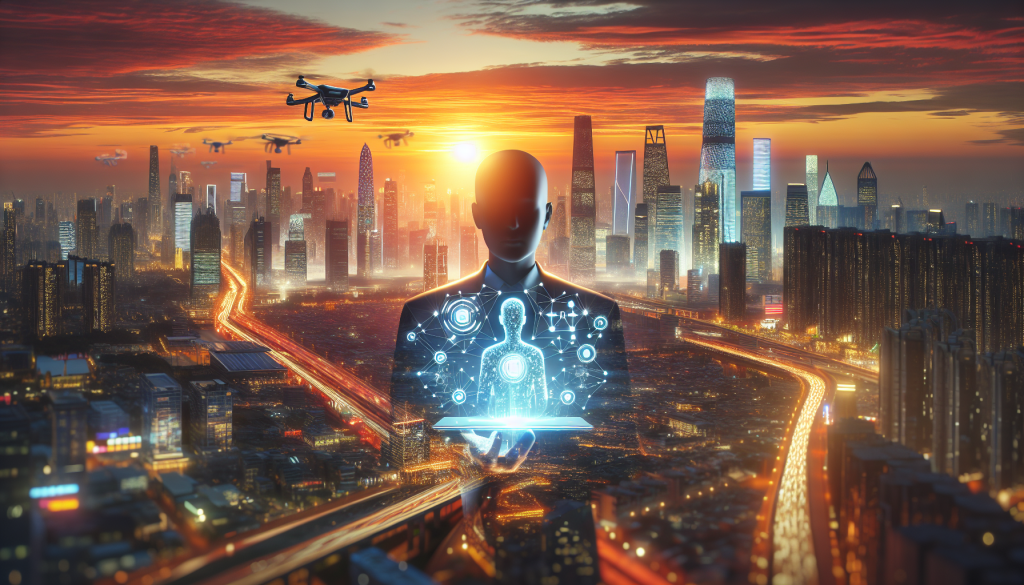
The technological landscape of the 21st century continues to evolve at an unprecedented pace, ushering in a new era driven by artificial intelligence (AI). Among the most transformative technologies is generative AI, which has not only reshaped industries but also redefined job markets across America. This emerging field has surged in demand, opening a plethora of opportunities while simultaneously raising questions about the future impact on the workforce.
Generative AI refers to a subset of AI technologies that create content, whether it be text, images, audio, or video, through machine learning models. These models learn patterns from existing data and generate new, innovative outputs. The applications of generative AI are vast, spanning entertainment, healthcare, business, and more, fueling economic growth and redefining the possibilities of technology.
As industries increasingly integrate generative AI into their operations, the demand for skilled professionals has surged. Indeed, job platforms like Indeed and LinkedIn have reported thousands of openings for roles such as Machine Learning Engineers, AI/ML Engineers, and Data Scientists, highlighting the necessity for expertise in deep learning, model training, and data analysis. Companies nationwide are actively seeking experts who can build and optimize generative models to drive forward their AI agendas.
A notable concentration of these generative AI jobs is emerging in tech hubs like Austin, Texas, and Silicon Valley, where innovation and technology are core components of the local economy. For instance, Austin has become a vibrant center for tech startups and established companies alike, with numerous AI-focused roles available. As of recent reports, positions such as Generative AI Engineer and AI Training Engineer are highly sought after, especially as remote work opens up opportunities beyond geographical confines.
This demand is rooted in the ability of generative AI to augment various business processes. Within the corporate sphere, AI-driven automation is enhancing efficiency and sparking creativity by handling mundane tasks, allowing human employees to focus on strategic projects. In media and entertainment, generative models enable the rapid production of content, from music compositions to visual arts, reshaping how art is created and consumed.
Yet, with opportunity comes the challenge of adaptation. As generative AI continues to reshape job roles, concerns about job displacement arise, echoing the wider narrative of automation and its impact on traditional employment. Reports like those from McKinsey Global Institute suggest that while certain jobs may diminish, new roles will emerge, requiring a workforce adept in navigating AI technologies.
The future impact of generative AI jobs lies in education and upskilling programs capable of preparing the next generation of workers. Universities and online platforms are increasingly offering courses in AI and machine learning, equipping individuals with the skills needed to thrive in an AI-driven economy. Furthermore, companies are investing in training programs to reskill their current workforce, fostering an environment of continuous learning and adaptation.
The advancements in generative AI also represent a significant economic driver for America, promising to enhance productivity and spur innovation. As organizations strive to maintain competitive advantage, embracing AI technology and developing the talent to manage and improve these systems will become crucial.
Looking ahead, it is imperative to balance the integration of generative AI with ethical considerations and workforce readiness. Policymakers, educators, and industry leaders must collaborate to ensure that the opportunities presented by AI do not widen the gap between those with access to technology and those without. Inclusive policies and practices will play a critical role in creating an equitable future where advancements in AI benefit all members of society.
In summary, the rise of generative AI jobs in America signifies both a challenge and an opportunity. As industries transition toward AI-enabled processes, the demand for skilled professionals continues to grow, reshaping work as we know it. The key to harnessing this transformative technology lies in education, innovation, and an unwavering commitment to responsible AI development. As we navigate this evolving landscape, it is essential to foster an adaptable and inclusive workforce equipped to thrive in the AI era.